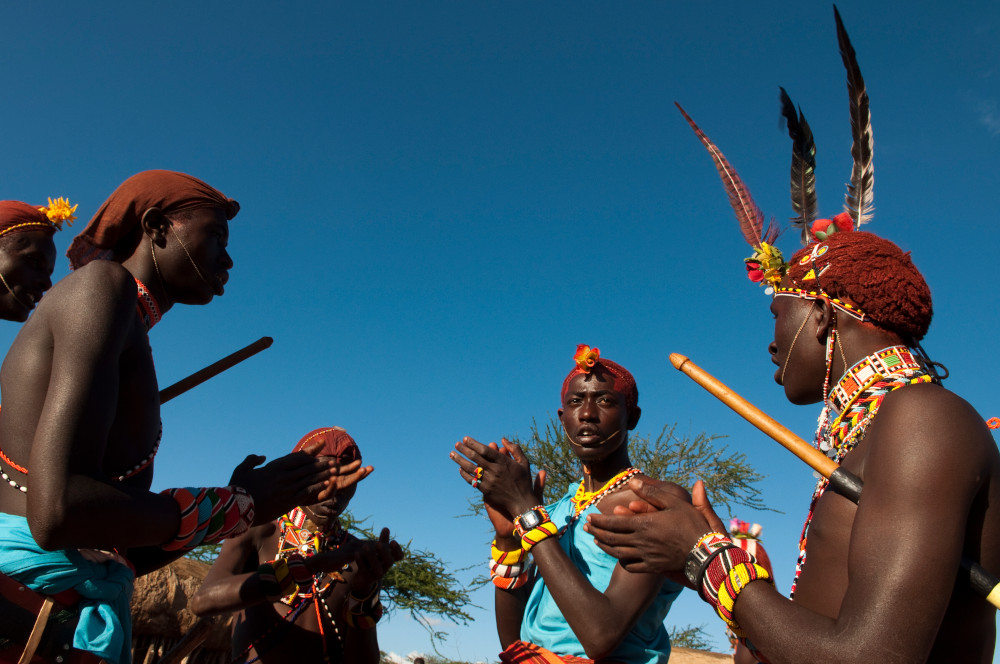
Gold has been deeply intertwined with African history, symbolizing wealth, power, and spiritual significance across various cultures. In West Africa, empires such as Ghana, Mali, and Songhai thrived between 400 and 1500 AD, largely due to their abundant gold resources, establishing the region as a major gold supplier to the world. This precious metal not only facilitated vast trade networks but also played a crucial role in the rise and fall of these powerful states.
Beyond its economic value, gold holds profound cultural and symbolic meanings in many African societies. For instance, among the Ashanti people of Ghana, gold is synonymous with wealth, royalty, and spiritual purity. It is intricately linked to their matrilineal heritage, with golden ornaments and artifacts playing central roles in ceremonies and the affirmation of social status. Similarly, in Senegalese culture, gold has historically been a means for women to assert power and prestige, with practices like ‘sañse’ showcasing their status through elaborate gold jewelry.
Despite the waves of modernization and external influences, the cultural significance of gold endures in African traditions. In Ethiopia, for example, gold medals such as the Imperial Order of the Star of Ethiopia are cherished symbols of national pride and resistance against colonial forces. The recent efforts by descendants of Ethiopian heroes to reclaim such artifacts highlight the enduring importance of gold as a representation of heritage and identity. This enduring reverence for gold underscores its integral role in both historical and contemporary African societies
Gold in Weddings & Marriage Traditions
Bride Price & Dowries
In many African cultures, gold plays a pivotal role in matrimonial customs, particularly in the form of bride price or dowry payments. Among the Akan people of Ghana, the dowry, known as ‘tiri nsa,’ often includes gold jewelry, symbolizing the groom’s appreciation and commitment to the bride’s family. Similarly, in Yoruba traditions, the bride price, called ‘owo ori,’ may comprise gold items, reflecting wealth and social standing. These practices underscore gold’s significance as a tangible representation of value and respect in marital unions.
Gold Jewelry in African Weddings
Gold adornments are integral to African wedding ceremonies, serving as symbols of beauty, prosperity, and enduring love. Brides often wear elaborate gold necklaces, earrings, and bracelets, which not only enhance their elegance but also convey familial wealth and cultural heritage. For instance, Nigerian brides frequently don layers of gold jewelry, signifying affluence and honoring ancestral traditions. These ornaments are meticulously crafted, reflecting the rich artistry inherent in African cultures.
Modern vs. Traditional Gold Usage
Contemporary African weddings often blend traditional customs with modern aesthetics, especially in the use of gold. While the symbolic importance of gold remains, couples may opt for designs that fuse classic motifs with contemporary styles. This fusion allows for personal expression while honoring cultural roots. Additionally, the rise of ethically sourced and sustainably crafted gold jewelry reflects a growing awareness and adaptation to global trends, ensuring that the essence of tradition harmoniously coexists with modern values.
Coronations & Royal Traditions
Gold Crowns & Regalia
In African monarchies, gold-adorned attire serves as a potent emblem of authority and prestige. Among the Asante people of Ghana, the Asantehene (king) dons elaborate gold regalia, including crowns, bracelets, and necklaces, during official ceremonies. These adornments not only signify royal status but also reflect the kingdom’s wealth and artistic heritage. Similarly, Zulu royalty in South Africa incorporate gold ornaments into their traditional attire, symbolizing power and continuity of leadership.
Gold as a Symbol of Divine Rule
Gold’s enduring luster and rarity have led many African cultures to associate it with the divine. Rulers often consider themselves chosen by higher powers, and wearing gold reinforces this spiritual connection. In the Asante kingdom, for instance, the Golden Stool (Sika Dwa Kofi) is believed to house the soul of the nation, legitimizing the Asantehene’s rule. This sacred object underscores the intertwined nature of gold, spirituality, and governance.
Famous African Royal Gold Artifacts
African history is replete with gold artifacts that embody royal authority and cultural identity. The Asante kingdom’s royal regalia includes items like the ‘akrafokonmu’ (soul washer’s badges) and ceremonial swords, each intricately designed and imbued with symbolic meaning. These artifacts play pivotal roles in rituals and are considered national treasures. Their significance extends beyond aesthetics, serving as tangible links to ancestral heritage and societal values.
Gold in Coming-of-Age Ceremonies
Initiation Rites & Gold Adornments
In various African cultures, coming-of-age ceremonies mark the transition from childhood to adulthood, often incorporating gold adornments to signify this important milestone. Among the Asante people of Ghana, young women participate in the “bragoro” ceremony upon reaching puberty. During this rite, they are adorned with gold jewelry, including necklaces and bracelets, symbolizing their new status and readiness for marriage. The use of gold in these ceremonies underscores its association with purity, prosperity, and the community’s recognition of the individual’s maturity.
Gold & Social Status
Gold serves as a marker of social status during these initiation ceremonies. The quantity and quality of gold jewelry presented to initiates often reflect their family’s wealth and standing within the community. This practice not only celebrates the individual’s passage into adulthood but also reinforces social hierarchies and communal values. The display of gold during such rites highlights its role in conveying respect, honor, and the continuity of cultural traditions.
Regional Variations
Across Africa, the use of gold in coming-of-age ceremonies varies by region. In West Africa, particularly among the Akan, gold jewelry is integral to initiation rites, symbolizing wealth and transition. In contrast, some East African communities may emphasize beadwork over gold, reflecting different cultural values and resource availability. In Southern Africa, archaeological findings from the Kingdom of Mapungubwe (c. 1075–1220) reveal that gold objects were used in elite burials, indicating the metal’s association with status and possibly rites of passage. These regional differences illustrate the diverse ways African cultures incorporate gold into their ceremonial practices, each imbued with unique meanings and significance.
Gold in Religious & Spiritual Offerings
Gold in African Traditional Religions
In various African traditional religions, gold is esteemed as a sacred material, often utilized in rituals to honor deities and ancestral spirits. Among the Akan people, gold weights and ornaments are not merely decorative but serve profound spiritual purposes. These items are employed in ceremonies to invoke protection, blessings, and guidance from the spiritual realm, reflecting gold’s intrinsic connection to the divine.
Christianity & Islam
Gold holds significant symbolism in African Christian and Islamic communities. In many African churches, gold-plated crosses and altarpieces symbolize the glory and majesty of the divine. Similarly, in Islamic contexts, gold is used in mosque adornments and calligraphy to reflect the beauty of creation and the eternal nature of the divine. However, traditional Islamic teachings often discourage men from wearing gold jewelry, reserving its use for women and specific religious artifacts.
Gold in Funerals & Ancestral Worship
Gold plays a vital role in African funerary practices, symbolizing the enduring legacy of the deceased. The Serer people of Senegal, for instance, historically mummified their dead, burying them with gold and personal belongings to prepare them for the afterlife. This practice underscores the belief in gold’s protective qualities and its significance in honoring ancestors.
The Symbolism of Gold Masks, Amulets & Jewelry
Gold Masks & Ancestral Spirits
In various African cultures, gold masks hold profound spiritual significance, often serving as conduits to ancestral realms. For instance, the Edo people of Benin crafted intricate ivory masks, such as the renowned 16th-century pendant mask representing Queen Mother Idia. This mask, adorned with iron inlays and depicting serene facial features, was likely used in ceremonies to honor ancestors and validate the Oba’s (king’s) divine authority. Such artifacts underscore the deep connection between gold artistry and spiritual reverence in African societies.
Gold Amulets & Talismanic Power
Gold’s intrinsic value extends beyond aesthetics in African traditions; it is believed to possess protective and healing properties. Many communities fashion gold into amulets or talismans, worn to safeguard individuals from harm and attract positive energies. For example, in Somali culture, women wear gold jewelry with amulet cases containing verses from the Quran, serving both as protection and as symbols of status. These practices highlight the dual role of gold as both a spiritual safeguard and a marker of social standing.
Gold in Everyday Symbolism
Beyond ceremonial uses, gold jewelry in African daily life often symbolizes luck, prosperity, and cultural identity. Among the Ashanti people, gold jewelry signifies wealth and status, reflecting the wearer’s social position and success. Similarly, the Maasai of East Africa incorporate intricate beadwork and gold elements into their adornments, each design and color conveying specific messages about the individual’s age, marital status, or social role. These everyday uses of gold-infused jewelry reinforce communal values and personal identities within African societies.
Gold continues to hold deep cultural and symbolic significance in African societies, playing a vital role in ceremonies, spirituality, and personal adornment. Despite globalization and changing economic landscapes, its presence in weddings, coronations, and ancestral traditions remains strong. The value placed on gold is not just about wealth but about identity, heritage, and continuity.
As younger generations embrace modern influences, they are also finding ways to preserve traditional gold customs. Whether through heirloom jewelry, incorporating gold into contemporary fashion, or maintaining its use in religious and social rites, African communities are adapting these practices while ensuring their cultural essence remains intact. The blending of heritage with modern design and ethical consumerism reflects a shift in how gold is perceived and utilized in everyday life.
Ensuring the sustainability of gold in African traditions requires a focus on responsible sourcing and fair trade practices. Ethical mining initiatives, improved labor conditions, and local beneficiation can help African nations retain more value from their gold resources while preserving the cultural and historical significance of this precious metal. The future of gold in African traditions depends not just on its economic worth, but on how it is protected and passed down as a symbol of heritage for generations to come.



